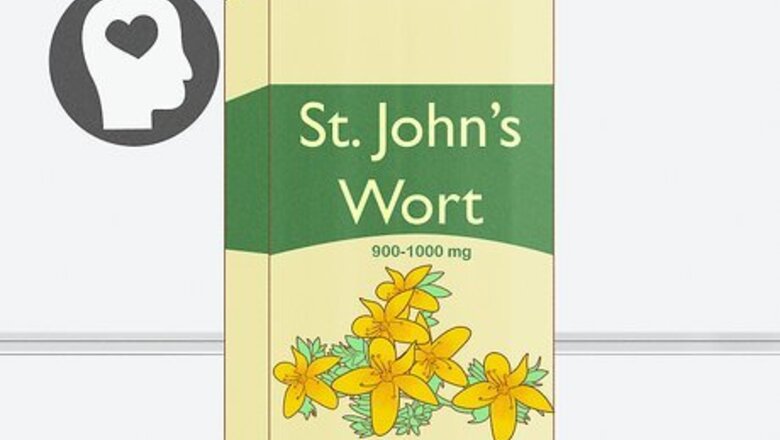
views
Herbs That Might Help
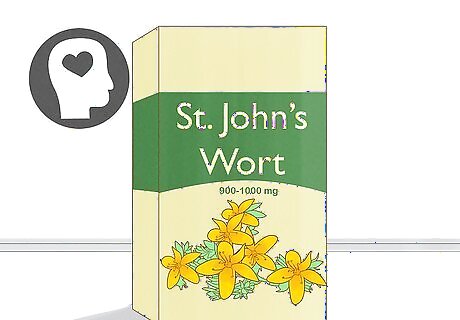
Use St. John’s Wort to relieve emotional symptoms. St. John’s Wort is a mood-stabilizer often used to treat depression and anxiety. If you regularly experience emotional or mood symptoms during PMS, then a daily supplement may help. Common doses for St. John’s Wort are 900-1,000 mg daily, but follow the dosing instructions for the brand that you use. Ask your doctor before you start taking St. John's Wort because it could interact with a few medications. Common contraindications include oral birth control, antidepressants, and blood thinners like warfarin.
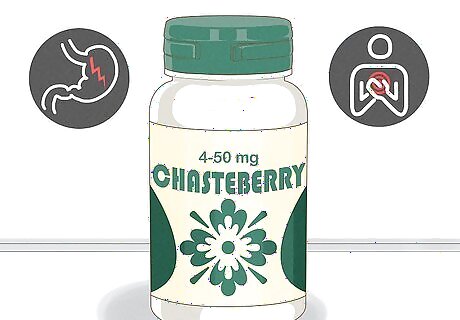
Try chasteberry for abdominal and breast pain. Chasteberry may be an effective treatment for the physical symptoms of PMS, particularly cramping and breast pain. Try taking a chasteberry extract if you regularly experience physical pain during PMS. The doses for chasteberry vary, ranging from 4 mg to 50 mg per day. It depends on how concentrated the extract is. Follow the dosing instructions that come with the brand you use. Women on hormonal birth control or menopause treatments shouldn’t take chasteberry because it can interfere with your hormone levels and make those treatments less effective. You also shouldn't take it if you're breastfeeding.
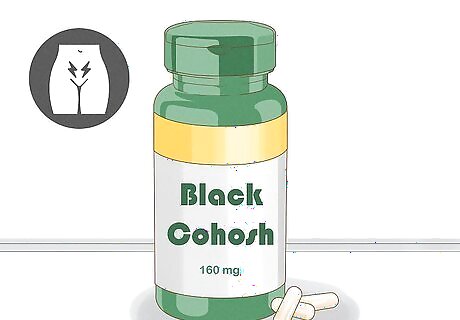
Fight cramps with black cohosh. This is a traditional remedy for body pains and aches, so it might help with PMS cramps. You can take it as a tablet or mix the powder into a drink. A common daily dosage is 160 mg. Black cohosh is also a popular herbal treatment for menopause symptoms like hot flashes. This herb doesn't have any known drug interactions, but it also hasn't been studied widely. It's best to ask your doctor before taking it if you're on any medications.
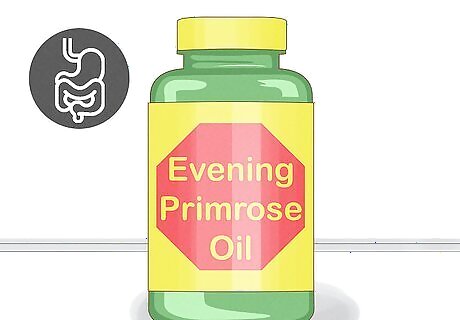
Take evening primrose oil to ease digestive problems. PMS can cause indigestion, gas, constipation, and bloating. Primrose oil is a traditional treatment for digestive problems like these, and can help if you experience these symptoms during PMS. Primrose oil comes in tablets or liquid form. The dosage varies based on how concentrated the mixture is, so always check the instructions. Primrose oil can interact with blood thinners like warfarin, so don't take it if you're on this medication.
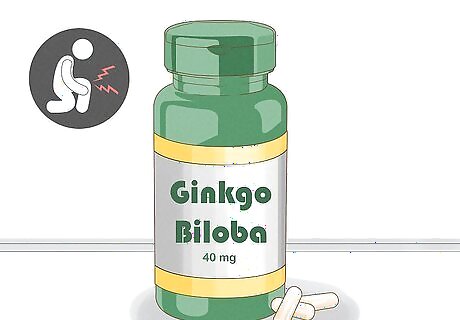
Try ginkgo biloba to minimize achiness. Some studies suggest that this supplement could relieve general PMS symptoms, especially aches and pains. Try taking 40 mg per day to see if this works for you. Ask your doctor before taking concentrated ginkgo doses because it can interact with blood thinners, antidepressants, statins, and pain relievers. Don't take it if you have epilepsy, because it could increase your risk of seizures.
Vitamins and Minerals to Relieve Symptoms
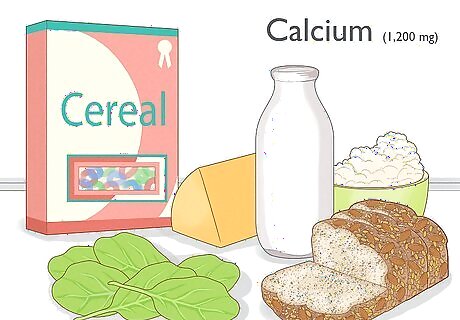
Take 1,200 mg of calcium to help with pain and mood symptoms. Some doctors recommend increasing your calcium intake during PMS to reduce fatigue, cramping, and mood swings. Try eating more calcium-rich foods or taking a supplement to increase your calcium levels. Calcium-rich foods include dairy products, leafy green vegetables, and fortified breads and cereals. Calcium is also important for strengthening your bones and prevent osteoporosis.
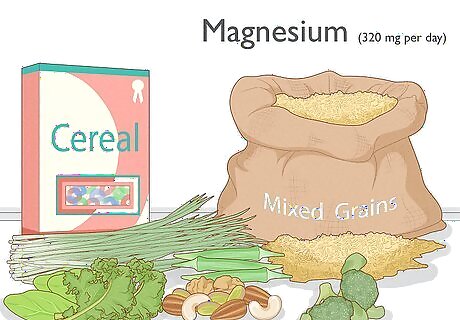
Try magnesium for headaches and migraines. If you often suffer from migraines during PMS, there’s some evidence that magnesium supplements could help with that. Try taking a daily magnesium tablet to increase your intake. Women need about 320 mg of magnesium per day, which you can get from food or supplements. You can also get more magnesium from nuts, leafy green vegetables, whole grain products, and fortified cereals. If you already have enough magnesium in your diet, then adding more might not help.
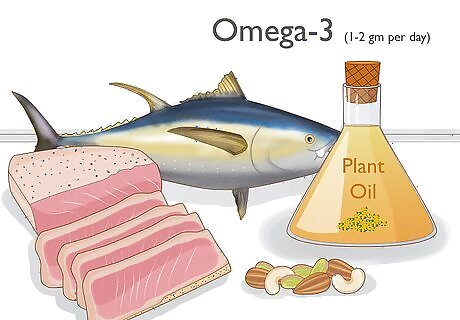
Increase your omega-3 fatty acid intake to relieve cramps. A diet high in omega-3s could help relieve cramping and body pains during PMS. Try to get 1-2 grams of omega-3s each day so your body has the right nutrients to fight PMS symptoms. Good omega-3 sources include oily fish, plant oils, and nuts. You can also take a daily supplement if you don’t get enough from your regular diet.
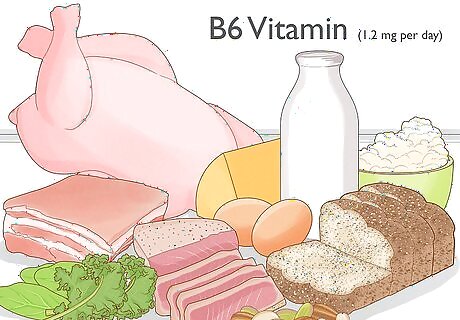
Get at least 1.2 mg of vitamin B6 each day to combat moodiness. There is evidence that having enough vitamin B6 in your system can prevent moodiness, fatigue, and other emotional side effects of PMS. Women should get at least 1.2 mg per day from their regular diet. You can also take a supplement if you aren’t getting enough from your food. Many foods have vitamin B6 and most people get plenty from their regular diet. Good sources include dairy products, eggs, poultry and pork, nuts, beans, most vegetables, fish, and whole-grain bread.
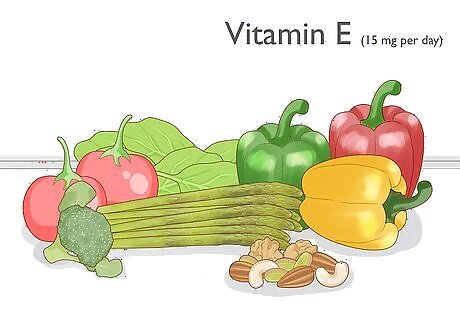
See if vitamin E helps your PMS symptoms. Vitamin E could help relieve PMS symptoms, but the exact benefits aren’t clear. Try to include at least 15 mg per day in your diet to see if this provides any relief from PMS. Nuts, seeds, and vegetables are the main sources for vitamin E. You can also take a supplement if you don’t get enough from your regular diet.












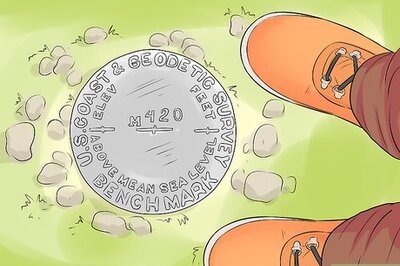






Comments
0 comment